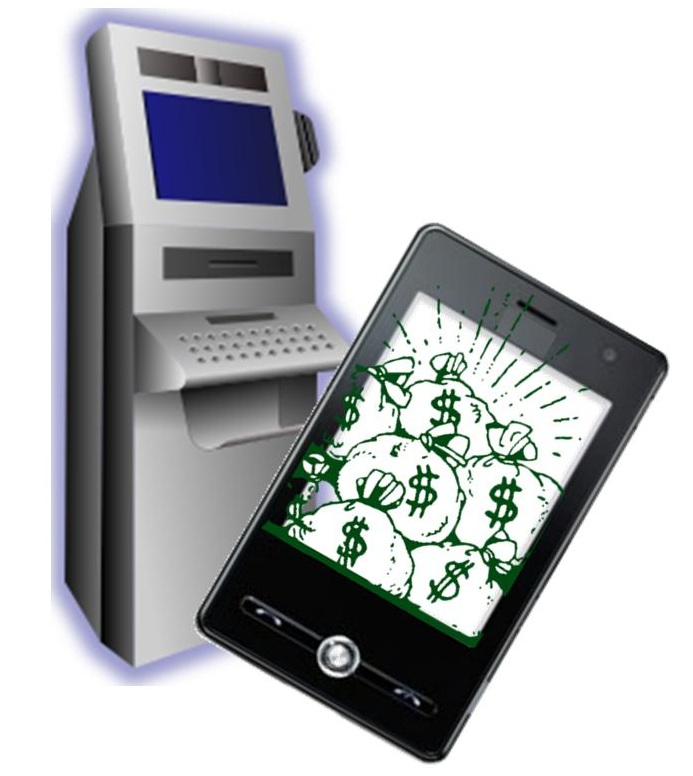The financial institutions are hoping to work together so that smartphone transactions can take on credit card systems.
Six of the biggest banks in Poland have announced that they will be working together in order to create a common standard for mobile payments which would result in a system that could place the dominance of traditional credit card giants at risk.
They are hoping that this will knock the wind out of Visa and MasterCard that currently lead the way in the country.
The banks that are involved in this partnership include Bank Zachodni WBK, Bank Millennium, ING Bank Śląski, Alior Bank, PKO Bank Polsk, and BRE Bank. As a group, the banks working toward this mobile payments system make up 70 percent of the electronic banking market in Poland. They will be working to come up with the standard under the Polish regulator in this sector.
The mobile payments offering will be based on the IKO app from PKO Bank, which was just launched in March.
 The mobile payments system will allow consumers in Poland to be able to complete purchase transactions while in stores, and will be able to make withdrawals from ATMs by entering a unique code that the app has generated. Consumers will also be able to use the app to send money to recipients simply by entering in their smartphone number in a way that has been compared to the UK’s Barklays Pingit service.
The mobile payments system will allow consumers in Poland to be able to complete purchase transactions while in stores, and will be able to make withdrawals from ATMs by entering a unique code that the app has generated. Consumers will also be able to use the app to send money to recipients simply by entering in their smartphone number in a way that has been compared to the UK’s Barklays Pingit service.
The use of this mobile payments system allows consumers to be able to make electronic transactions without the requirement of a credit card. This was a fact that Visa was “not happy about,” according to Wojciech Bolanowsky, from PKO.
At the same time, Boguslaw Kott, the CEO of Bank Millennium, has admitted quite openly that one of the purposes of the bank group in creating this mobile payments system is to challenge the rein of Visa and MasterCard. Kott was quoted to say that “This will be a more competitive system compared to the credit card system. The credit card system will probably be put under a question mark in the future.”
These large institutions are using data and offers to help to ensure that they hold the market.
Bankers have always seen transactions as their own domain, to the point that they are virtual owners, says recent Finextra research, and now they are hoping to use their might in this arena to lead the mobile payments sector, as well.
To do this, Finextra has reported that they will be deploying data and discounts to eliminate the competition.
The research from Finextra suggested that in order to become the most powerful player in mobile payments, they will be using their data and applying discounts as massive weapons in the battle to hold control over transactions and to be able to provide services that step above and beyond making a purchase.
 The Finextra research was based on the responses given by over 180 bankers who were surveyed.
The Finextra research was based on the responses given by over 180 bankers who were surveyed.
These survey participants were asked about what Finextra referred to as “key issues” in the realm of monetizing mobile payments. Some of the findings produced by the study include that 81 percent of the participating banks are seeking to add value beyond the actual transaction itself. This included making relevant offers to consumers directly at the point of sale.
Moreover, about two out of every three survey participants (67 percent) explained that they were seeking to own and manage the markets not only for the money of a consumer, but also all of the other elements of an individual’s wallet, such as points cards, memberships, and coupons.
Other mobile payments survey findings from the respondents included:
• 60 percent felt that a “trusted banking environment” is the most appropriate place for mobile payments, as opposed to third party smartphone apps.
• 43 percent said that they had a digital wallet offering in the pipeline within the next 6 to 12 months.
• 49 percent would take part in some form of open industry digital wallet initiative.
In terms of the future of mobile payments “big data”, 44 percent of the banks explained that they did not have adequate resources to take full advantage of it, and an additional two out of every three respondents said that smartphone monetization would be a primary big data usage driver, offering the required insight for personalizing targeted offers to consumers.
 The mobile payments system will allow consumers in Poland to be able to complete purchase transactions while in stores, and will be able to make withdrawals from ATMs by entering a unique code that the app has generated. Consumers will also be able to use the app to send money to recipients simply by entering in their smartphone number in a way that has been compared to the UK’s Barklays Pingit service.
The mobile payments system will allow consumers in Poland to be able to complete purchase transactions while in stores, and will be able to make withdrawals from ATMs by entering a unique code that the app has generated. Consumers will also be able to use the app to send money to recipients simply by entering in their smartphone number in a way that has been compared to the UK’s Barklays Pingit service.
 The Finextra research was based on the responses given by over 180 bankers who were surveyed.
The Finextra research was based on the responses given by over 180 bankers who were surveyed.